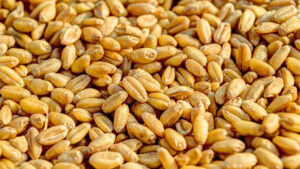
As of May 12, Ukraine had exported 37.064 million tons of grains and legumes since the beginning of the 2024-2025 marketing year (July-June), of which 1.796 million tons were shipped this month, according to the press service of the Ministry of Agrarian Policy and Food, citing data from the State Customs Service of Ukraine.
According to the report, as of May 17 last year, total shipments amounted to 44.214 million tons, including 2.856 million tons in May.
In terms of crops, since the beginning of the current season, 14.467 million tons of wheat (564,000 tons in May), 2.286 million tons of barley (19,000 tons), 10,800 tons of rye (0), corn – 19.755 million tons (1.206 million tons).
Total exports of Ukrainian flour since the beginning of the season as of May 16 are estimated at 61,000 tons (3,300 tons in May), including wheat flour – 57,600 tons (3,200 tons).
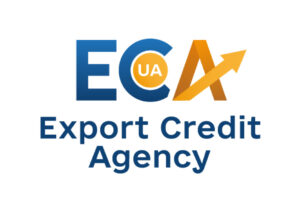
The Export Credit Agency (ECA) insured foreign economic contracts of 33 Ukrainian enterprises in January-April 2025, thus securing UAH 5.35 billion in future export revenues, according to the website of the Ministry of Economic Development and Trade.
It is emphasized that during the same period last year, the volume of supported exports amounted to 1.7 billion hryvnia.
“This growth indicates that businesses see the effectiveness of this protection tool. Insurance of export contracts has enabled manufacturers to reduce the risk of non-payment and gain access to bank financing. This helps companies scale up production and enter new markets,” said Deputy Minister of Economy of Ukraine Andriy Telyupa.
During this period, the most active exporters were companies from Lviv (UAH 1.37 billion), Khmelnytskyi (UAH 1.31 billion), and Volyn (UAH 1.12 billion) regions. Ukrainian companies exported furniture, food products, wood, wood products, and processed fruit and vegetables to Poland, the Netherlands, Lithuania, Estonia, the United Kingdom, and other countries.
The largest partners of the ECA among banks during this period were: Creditwest Bank – UAH 109 million in loans issued, Oschadbank – UAH 92.5 million, and Ukrgasbank – UAH 90 million.
The Export Credit Agency of Ukraine (ECA) is a state institution that supports non-raw material exports by insuring the risks of enterprises and banks. The agency insures foreign economic contracts, export credits, bank guarantees, and investment credits against military risks.
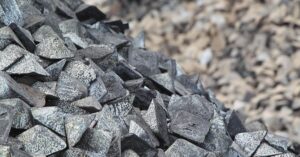
In January-April this year, Ukraine increased exports of ferroalloys in physical terms 34 times compared to the same period last year, to 38,963 thousand tons from 1,141 thousand tons.
According to statistics released by the State Customs Service (SCS) on Tuesday, in monetary terms, exports of ferroalloys increased 11.6 times to $42.657 million.
The main export destinations were Poland (33.84% of shipments in monetary terms), Algeria (24.34%), and Turkey (21.38%).
In addition, in the first four months of 2025, Ukraine imported 14,341 thousand tons of this product, a decrease of 60.7% compared to the first four months of 2024. In monetary terms, imports fell by 53.1% to $27.798 million. Imports came mainly from Norway (29.80%), Kazakhstan (12.65%), and Georgia (12.14%).
As reported, the Pokrovsky Mining and Processing Plant (PGZK, formerly Ordzhonikidze Mining and Processing Plant) and Marganetsky Mining and Processing Plant (MGPP, both in Dnipropetrovsk region), which are part of the Privat group, stopped mining and processing raw manganese ore in late October – early November 2023, while NZF and ZZF stopped smelting ferroalloys. In the summer of 2024, ferroalloy plants resumed production at a minimum level.
In 2024, Ukraine reduced its exports of ferroalloys in physical terms by 4.45 times compared to 2023, to 77,316 thousand tons from 344,173 thousand tons. In monetary terms, exports fell 3.4 times, to $88.631 million from $297.595 million. The main exports were to Poland (27.40% of shipments in monetary terms), Turkey (21.53%), and Italy (19.82%).
In addition, last year Ukraine imported 82,259 thousand tons of this product compared to 14,203 thousand tons in 2023 (an increase of 5.8 times). In monetary terms, imports increased 3.3 times, to $140.752 million from $42.927 million. Imports came mainly from Poland (32.71%), Norway (19.55%), and Kazakhstan (13.90%).
The business of ZZF, NZF, Stakhanov ZF (located at NKT), Pokrovsky and Marganetsky GZK was organized by PrivatBank before the nationalization of the financial institution. The Nikopol Ferroalloy Plant is controlled by the EastOne group, which was created in the fall of 2007 as a result of the restructuring of the Interpipe group, as well as the Privat group.

In January-April this year, Ukraine reduced exports of titanium-containing ores and concentrates in physical terms by 90.4% compared to the same period last year, to 277 tons.
According to statistics released by the State Customs Service (SCS) on Tuesday, in monetary terms, exports of titanium-containing ores and concentrates decreased by 89.6% to $496,000.
The main exports went to Uzbekistan (35.61% of shipments in monetary terms), Turkey (35.01%), and Egypt (29.38%).
In the first four months of 2025, Ukraine imported 22 tons of titanium-containing ore worth $37,000 from China (100%), all in January.
As reported, in 2024, Ukraine reduced exports of titanium-containing ores in physical terms by 37.5% compared to the previous year, to 7,284 tons. In monetary terms, exports of titanium-containing ores and concentrates decreased by 40% to $11.654 million. The main exports were to Turkey (62.82% of shipments in monetary terms), Egypt (7.38%), and Poland (6.93%).
In 2024, Ukraine imported 314 tons of titanium-containing ore worth $492 thousand from China (87.78%), Vietnam (6.11%), and Senegal (also 6.11%).
At the same time, experts pointed to discrepancies in statistics on exports of titanium-containing ores. However, in response to a request from Interfax-Ukraine, the State Customs Service (SCS) of Ukraine reported that complete data on exports of titanium raw materials is not provided due to restrictions on the volume of export and import operations with military and dual-use goods, which are reflected in aggregate form under “Other goods.”
They explained that, in particular, deliveries of titanium-containing ores from companies differ from the SCS data.
“We would like to inform you that these deliveries are included in the statistical exports from Ukraine, but are not reflected in the foreign trade statistics published by the State Customs Service (…) under the UKTZED commodity code 2614 “Titanium ores and concentrates” in view of the following. (…) In accordance with the provisions (…) during data protection for confidentiality purposes, any information considered confidential shall be reported in full at the next higher level of product data aggregation,” the State Customs Service explained in its response to the agency.
It was clarified that information on customs clearance and movement across the customs border of Ukraine of goods subject to export control is included in the list of information containing official information in the State Customs Service, in accordance with the relevant order.
In Ukraine, titanium-containing ores are currently mined mainly by PJSC United Mining and Chemical Company (OGHK), which manages the Vilnohirsk Mining and Metallurgical Plant (VGMK, Dnipropetrovsk region) and the Irshansk Mining and Processing Plant (IGZK, Zhytomyr region), as well as LLC “Mezhirichensky GZK” and LLC “Valky-Ilmenit” (both LLCs are located in Irshansk, Zhytomyr region). In addition, the production and commercial firm Velta (Dnipro) built a mining and processing plant at the Birzulivskoye deposit with a capacity of 240,000 tons of ilmenite concentrate per year.
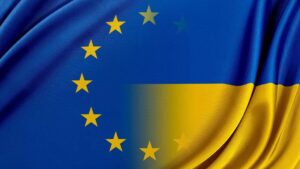
The EU is preparing to impose increased tariffs on Ukrainian imports within a few weeks, which will hit Ukraine’s economy at a crucial moment in its fight against Russian aggression, the Financial Times reported.
According to the publication’s sources, the decision to abruptly terminate special trade agreements that allowed most Ukrainian goods to be imported into the EU duty-free was made after Poland led a movement to protect the bloc’s farmers.
European diplomats said that this transitional proposal, recently sent to EU member states, would sharply reduce duty-free quotas for agricultural products.
Two EU diplomats told the FT that the European Commission’s transitional measure would split the annual duty-free quota into 12 monthly quotas to reduce imports while negotiations continue.
This will have the greatest impact on corn, sugar, honey, and poultry. The corn quota will be reduced from 4.7 million tons to 650,000 tons per year. The quota for poultry will fall from 57,000 tons to 40,000 tons, and for sugar from 109,000 tons to 40,700 tons.
A European Commission representative confirmed that the military agreements will not be reinstated “because we are currently working on revising” the free trade agreement between the EU and Ukraine.
“The Commission is also looking into possible transitional measures in case the talks aren’t finished and aren’t applied by June 6,“ he added.
“This is a really bad signal for Ukraine,” said Bernd Lange, head of the European Parliament’s trade committee, adding that the search for a solution will continue until at least October.
His committee will hear the European Commission’s position on Wednesday on why the promised trade talks have stalled, given that the June deadline was “known for a long time,” Lange said.
According to the publication, the Ukrainian government estimates that a return to pre-war trade conditions would reduce the country’s revenues by approximately EUR 3.5 billion.
“This is a huge step backwards. What we are seeing now is a lack of understanding,” said Mykhailo Bno-Ayriyan, trade representative of the Federation of Employers of Ukraine.
As reported, the EU has a free trade agreement with Ukraine, and after Russia’s invasion of Ukraine in 2022, the EU temporarily suspended customs tariffs on Ukrainian agricultural products. These agreements expire on June 6, and the EU plans to replace them with “transitional measures” while both sides update their joint trade agreement.
The duty-free regime established in 2022 applied to poultry meat, wheat, and sugar from Ukraine, most of which passed through EU countries on their way to Africa and Asia. But farmers and politicians in Poland, France, and other countries have blamed Ukrainian exports for driving down domestic prices. Ahead of the May 18 presidential election, Warsaw asked the European Commission to postpone the highly unpopular trade talks with Kyiv to minimize the chances of nationalist opposition candidate Karol Nawrocki.
Since early 2025, the European Commission has stated its intention to abolish preferential trade in agricultural products for Ukraine. It was expected that trade measures to support Ukraine would be more modest and that imports into the EU would decline.
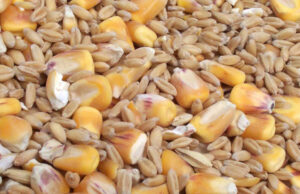
The US Department of Agriculture (USDA) has published its first forecast for grain exports from Ukraine for the 2025/26 marketing year (MY): it expects wheat exports to grow to 16.5 million tons from 16 million tons in 2024/25 MY and corn exports to grow to 24 million tons from 22 million tons.
According to the forecast on the US agency’s website, this year’s wheat harvest in Ukraine will decrease slightly to 23 million tons from 23.4 million tons last year, while domestic consumption will decline to 6.6 million tons in this MY from 6.7 million tons in the previous MY, with carryover stocks remaining at 1.49 million tons.
As for corn, the USDA expects its harvest to increase to 30.5 million tons from 26.8 million tons last year, as well as an increase in domestic consumption to 6.23 million tons from 5.15 million tons and carryover stocks from 0.31 million tons to 0.6 million tons.
According to the US Department of Agriculture, the total harvest of feed crops this year will amount to 37.04 million tons, compared to 33.47 million tons last year, and their exports in 2025/26 MY will reach 27.58 million tons, up from 24.48 million tons in 2024/25 MY.
Overall, the USDA expects wheat harvests to increase this year to 808.5 million tons from 799.7 million tons last year, and corn harvests to increase to 1,265.0 million tons from 1,221.3 million tons.
As for wheat exports, according to the US Department of Agriculture, in 2025/26 MY, they will increase to 212.99 million tons from 206.12 million tons this MY, and corn exports will increase to 195.81 million tons from 189.35 million tons.